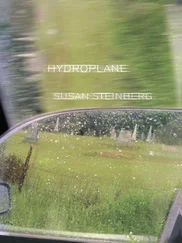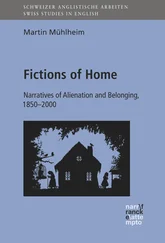It was what I would have to tell you was a peeved look, you know?
You know what I mean when I say peeved?
I mean peeved as in pissed off.
Made to stop being, for a little bit, where she was — it must have really pissed her off, the nun.
God, to be there — to be anywhere — the way the nun I have been telling you about was.
Just once.
Or — better, better — forever.
KONKLUDING LABOR OF HERKULES
HERE'S ONE.
Woman gets sick. Seven years sick. Dies. Is dead. So husband buries her. Comes home. Sees mess the household is in. Sees seven years of the mess the household is in. Phones cleaning service. Gets on phone and phones cleaning service. Wants premises cleaned. He means get it cleaned just for him to be able to first begin to see where somebody like him could maybe begin to start to really get it clean. So they come, they clean. So man takes a look — and breathes. Sits breathing, breathes. Then goes gets garment. Goes gets needle. Goes gets thread. Sews garment to chest, chest to garment, chest to chair. Had probably must have wished, don't you guess, to effect said deed with thimble. But thimble make-believe.
UPON THE DOORPOST OF THY HOUSE
WHAT ARE YOU LOOKING AT THIS FOR? Is there something you expect to derive from looking at this? What is it you expect to derive from looking at this? What result is it you anticipate from the time you give to this? What if it is not forthcoming? What if what you want from reading this is not forthcoming? Will you make it your business to assign blame if what you want from this is not forthcoming? Have you given any thought to the question of why it is you think something ought to be wanted or might ever be forthcoming? Do you not think it worth wondering why anyone should wish for anything to be forthcoming? Does it not occur to you the wish for there to be something forthcoming subjects one to the allegation that one deems oneself to be incomplete, needful, deficient? Do you believe it inures to the grandeur of your notion of yourself to deem yourself any of the foregoing? Are you quite certain you quite positively know the sense in which the expression "inures to" is uttered? Is there not some particle of uncertainty somewhere in you in your sense of what you know? Is it not altogether too immediately conceivable to you that you must have misconstrued the character of my meaning? Would it not at all give you to wonder for you to come to discover you took a view of matters quite out of keeping with what you were meant to? If someone says to you a sentence wherein the device of "if not" — let alone "let alone" — is in evidence, would you not feel yourself a dot unsteadier as you went, if not disabled? Did the sentence just prior to this one not warrant, as it went, my right to produce myself as your inquisitor? What is it in you that, despite every reason for you to be rid of this exanimate exercise, animates you, that keeps animating you, that will not quit animating you, that keeps making you make your way onward with such animal vivacity? Is this how you have determined to un-determine yourself, how it is imagined you will let alone yourself, how in a bounded event bondage, the bondage, is not a little like — you feel it! — infinitude, let alone freedom?
I ONLY HAVE A CERTAIN NUMBER of minutes for me to tell you this one. Or I have only a certain number for me to. Holy moly, I only do — but am, but have been — look at me, look at me! — already wasting some of the ones I do. Except the thing of it is is this: where the dickens does the only go, where the deuce is the only supposed to? Because it has just been made clear to me I do not know whether where it is supposed to is before or after the have.
The positioning of the adverb, I mean.
Or is it that it's not?
Is, rather, an adjective, that is.
Look, if I had all the time in the world, if I had as much time in the world to tell a dog story as I bet you would probably have time in the world for you to tell one, then here is how I would have probably begun to tell you this one and not the way I did.
Let me tell you what our custom was — for it was for us to make our unhurried way arm in arm along High Street when the commerce in it was first giving evidence of its having begun to come for the day to the end of its incidence and when none but the ladies of station still sought to keep the shopkeepers established in states of attention in hopes perhaps of their — of the hopeful merchants, that is — disposing of whatever further of their wares. It was then that she customarily for her part and I for mine would hasten from our sleepy offices to collect ourselves at the corner of High and Indenture and then to turn in along High and to take ourselves along our practiced course to where the vendor, at Cathedral, from the shelter of a sidewalk stand, sold a variety of grilled sausages and, to go with them, any one of them — providing one wished it to — one variety of bread.
Forget it.
I do not have time for anything as leisurely as tarrying with food in or even out of my mouth.
The minutes I have are fewer than the minutes I had — and I can see there are sentences yet for me to go before I can get to the wind-up yet.
Which anyhow goes, in certain of its acoustical and lexical occasions, like this:
"They killed my dog there. But did I not tell you that they killed my dog there?"
Because I, in the story, say to her, in the story: "It is so nice here. It's so nice."
Whereupon she says, "It is. Yes, very. It is very nice, isn't it?"
"Yes, " I say, "it certainly really is."
"But I think it is decisively nicer in Zurich, I think."
That's she.
Now here's — in the story, that is — me, I, speaking in it, and saying, as if it mattered:
"It is?"
"I think it is, yes," says she.
"Zurich," say I. "Imagine it, Zurich," say I.
"Yes, very," says she, reaching into her purse for the money to pay.
"Then you have been to Zurich?" say I.
"Oh, yes," says she. "Yes," says she. "I actually," says she, "lived there, was once in residence there, you realize."
"Imagine it," say I. "The famous burial place," say I. "The place of the famous burial, that is."
"Oh, yes," says she. "Lived there — oh, yes — years literally — literally years."
"Years?" say I. "Actually years?"
"Oh, yes — very," says she. She says. "Quite literally longer than he did, you know. Actually," says she, "Zurich. But did I not tell you that they killed my precious Schatzie in Zurich? So adorable, so deliciously adorable. A dog."
I acquired the blutwurst — with which no mitigating breadstuff, to my mind, would be required.
Okay, time's up. She is fucking making me as tetched as a Pomeranian all over again anyway. Or she anyway is making me as fucking tetched as one.
Well, let's face it, sweetface, there are never anymore minutes— nicht , you know, wahr ?
I am meanwhile — I positively, I honestly believe — savagely famished.
Adverbially speaking, or speaking adverbially.
I'M TELLING ANOTHER FISH STORY. That's what this is — it's going to be another fish story. Told one once and read it for the eighth time just two minutes ago and you know what?
It wasn't so bad.
It was actually pretty good.
At least it made, I think, some sense, which is a lot more than I think I can say for most of what I say. Anyway, just like the first fish story I told, it won't take but a minute for me to tell it. Another thing, there's just mainly me in it and Uncle Henry in it and Uncle Henry's dogs in it, which means it shouldn't be so hard for you to keep track of what's going on in it. Their names (those of the dogs, you understand) were (I hope with all my heart the stinking stinkers are dead) Jackson and Mickey, or were Mickey and Jackson — big (or so everything seemed to me at the time) ponderous brutes that snapped at the air for what probably looked to them like it was flying through it — bugs and shit, I guess — and that chewed the eels Uncle Henry kept producing from up out of the junky water we always sat there fishing in.
Читать дальше











